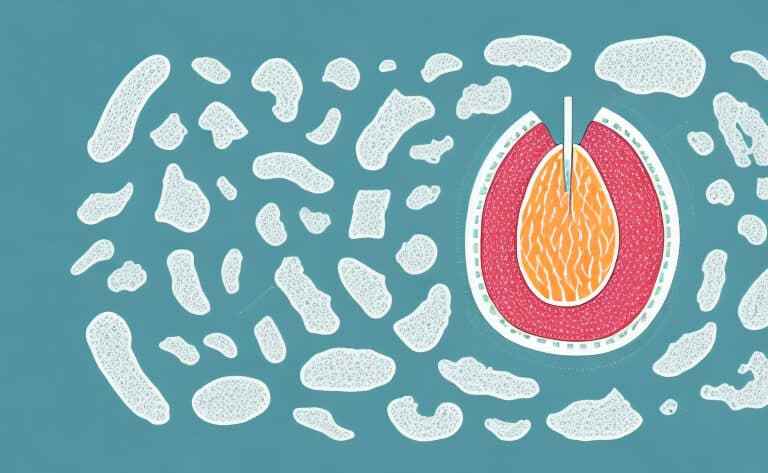Fatty liver disease is becoming increasingly common, with an estimated 30% of people in the United States affected by this condition. It is also known as hepatic steatosis and is characterized by a buildup of fat in the liver cells. While fatty liver disease might not initially produce any symptoms, it can cause liver damage and progress to more serious liver conditions such as cirrhosis and liver cancer. Fortunately, managing fatty liver disease is often possible with the right diet and lifestyle changes. In this article, we take a closer look at the best diets for treating fatty liver disease.
In addition to the diets mentioned above, there are other dietary changes you can make to help manage fatty liver disease. For example, reducing your intake of saturated and trans fats can be helpful. These types of fats are often found in processed foods, fried foods, and fatty meats. Instead, focus on consuming healthy fats such as those found in avocados, nuts, and fatty fish like salmon.
Another dietary change that can be beneficial is increasing your intake of fruits and vegetables. These foods are high in antioxidants, which can help reduce inflammation in the liver. Additionally, they are high in fiber, which can help improve digestion and reduce the amount of fat absorbed by the body.
It is also important to limit your intake of added sugars and refined carbohydrates. These types of foods can cause spikes in blood sugar levels, which can lead to insulin resistance and contribute to fatty liver disease. Instead, opt for whole grains and complex carbohydrates like sweet potatoes and brown rice.
Finally, staying hydrated is essential for liver health. Drinking plenty of water can help flush toxins out of the body and keep the liver functioning properly. Aim for at least eight glasses of water per day, and avoid sugary drinks and alcohol.
By making these dietary changes and working with your healthcare provider to manage your condition, you can improve your liver health and reduce the risk of complications from fatty liver disease.
The Mediterranean Diet
(The Best Diets for Treating Fatty Liver Disease)
The Mediterranean diet is a heart-healthy eating plan that has been shown to reduce the risk of chronic diseases such as heart disease, diabetes, and certain types of cancer. This diet emphasizes consuming whole grains, fruits, vegetables, nuts, seeds, legumes, and lean protein sources such as fish and poultry. In addition, the Mediterranean diet is rich in heart-healthy fats such as olive oil, which may improve liver health.
The Mediterranean diet is not a strict diet plan but rather a way of eating that is based on the traditional foods and dietary patterns of the countries surrounding the Mediterranean Sea. These countries include Greece, Italy, Spain, and Turkey, among others.
Key Components of the Mediterranean Diet
The Mediterranean diet is characterized by:
- Whole grains: Whole-grain bread, pasta, and rice are staples of the Mediterranean diet. These foods are rich in fiber, vitamins, and minerals, and can help reduce the risk of heart disease and other chronic diseases.
- Fruits and vegetables: The Mediterranean diet emphasizes consuming a variety of colorful fruits and vegetables, which are rich in antioxidants and other nutrients that help protect the body against disease.
- Nuts and seeds: Nuts and seeds are a good source of healthy fats, protein, and fiber. They can help reduce inflammation in the body and improve heart health.
- Legumes: Legumes such as beans, lentils, and chickpeas are a good source of protein, fiber, and other nutrients. They can help improve blood sugar control and reduce the risk of heart disease.
- Lean proteins like fish and poultry: Fish and poultry are the primary sources of protein in the Mediterranean diet. They are rich in nutrients such as omega-3 fatty acids, which can help reduce inflammation and improve heart health.
- Heart-healthy fats like olive oil: Olive oil is the primary source of fat in the Mediterranean diet. It is rich in monounsaturated and polyunsaturated fats, which can help reduce inflammation and improve heart health.
Benefits for Fatty Liver Disease
Fatty liver disease is a condition in which there is an accumulation of fat in the liver cells. This condition can lead to inflammation and damage to the liver, which can increase the risk of liver disease and other health problems.
The Mediterranean diet is rich in antioxidants and anti-inflammatory compounds that help reduce inflammation in the liver cells. The diet’s healthy fats also improve insulin sensitivity, which is essential for fatty liver disease management. A study published in the Journal of Hepatology found that a Mediterranean-style diet can significantly reduce liver fat content and improve liver function in people with non-alcoholic fatty liver disease (NAFLD).
Other studies have also shown that the Mediterranean diet can help improve liver health in people with liver disease. For example, a study published in the World Journal of Gastroenterology found that a Mediterranean-style diet can help reduce liver inflammation and improve liver function in people with hepatitis C.
Sample Mediterranean Diet Meal Plan
A sample Mediterranean diet meal plan for fatty liver disease might look like:
- Breakfast: Oatmeal with almond milk, fresh berries, and walnuts. Oatmeal is a good source of fiber, which can help improve blood sugar control and reduce the risk of heart disease. Berries are a good source of antioxidants, which can help protect the body against disease. Walnuts are a good source of healthy fats, protein, and fiber.
- Lunch: Greek salad with chicken breast, tomatoes, cucumber, feta cheese, and olive oil dressing. Greek salad is a good source of fiber, vitamins, and minerals. Chicken breast is a good source of lean protein, which can help improve muscle mass and reduce the risk of heart disease. Tomatoes and cucumbers are a good source of antioxidants and other nutrients. Feta cheese is a good source of calcium and protein. Olive oil dressing is a good source of healthy fats.
- Snack: Apple slices with almond butter. Apples are a good source of fiber and antioxidants. Almond butter is a good source of healthy fats, protein, and fiber.
- Dinner: Grilled salmon with roasted vegetables, quinoa, and lemon. Salmon is a good source of omega-3 fatty acids, which can help reduce inflammation and improve heart health. Roasted vegetables are a good source of fiber, vitamins, and minerals. Quinoa is a good source of protein, fiber, and other nutrients. Lemon is a good source of vitamin C, which can help boost the immune system.
The DASH Diet
(The Best Diets for Treating Fatty Liver Disease)
The DASH diet, or Dietary Approaches to Stop Hypertension, is a diet designed to help reduce high blood pressure. It focuses on whole foods and limiting processed foods, saturated fats, and refined sugars.
What is the DASH Diet?
The DASH diet is characterized by:
- Whole grains
- Fruits and vegetables
- Low-fat dairy products
- Lean proteins like fish and poultry
- Nuts, seeds, and legumes
- Limiting processed foods, saturated fats, and refined sugars
How the DASH Diet Helps Fatty Liver Disease
The DASH diet can improve insulin sensitivity, reduce liver fat content, and lower inflammation in the liver cells. A study published in the Journal of Nutrition found that a DASH-style diet can improve liver function in individuals with NAFLD.
Creating a DASH Diet Meal Plan
A sample DASH diet meal plan for fatty liver disease might look like:
- Breakfast: Greek yogurt with fresh berries, almonds, and honey
- Lunch: Tuna sandwich with whole-grain bread, avocado, cherry tomatoes, and cucumber
- Snack: Carrot sticks with hummus
- Dinner: Grilled chicken breast with roasted sweet potatoes, green beans, and garlic
Plant-Based Diets
Plant-based diets consist of mostly plant-based foods, such as fruits, vegetables, grains, nuts, and seeds. These diets may include small amounts of animal products, but the emphasis is on plant-based foods.
The Role of Plant-Based Foods in Liver Health
Plant-based diets are rich in antioxidants, fiber, and other essential nutrients that are beneficial for liver health. These diets are also helpful in weight management and reducing inflammation levels in the liver cells. A study published in the Journal of the American College of Nutrition found that a plant-based diet improved liver function and reduced liver fat content in individuals with NAFLD.
Tips for Transitioning to a Plant-Based Diet
If you want to transition to a plant-based diet, start by gradually incorporating more plant-based foods into your meals. Try swapping meat for legumes or tofu in your recipes and experiment with new fruits and vegetables to add variety to your diet.
Plant-Based Diet Recipes for Fatty Liver Disease
Here are some examples of plant-based recipes to try if you have fatty liver disease:
- Black bean and sweet potato chili
- Grilled vegetable skewers with quinoa
- Roasted vegetable and lentil salad
- Vegan lentil shepherd’s pie
Conclusion: The Best Diets for Treating Fatty Liver Disease
Managing fatty liver disease is possible with the right diet and lifestyle changes. The Mediterranean diet, DASH diet, and plant-based diets have all been found to be beneficial in managing this condition. The key is to eat whole, nutrient-dense foods that improve liver function and minimize liver inflammation. If you have fatty liver disease, talk to your healthcare provider for personalized recommendations on the best diet plan for you.





